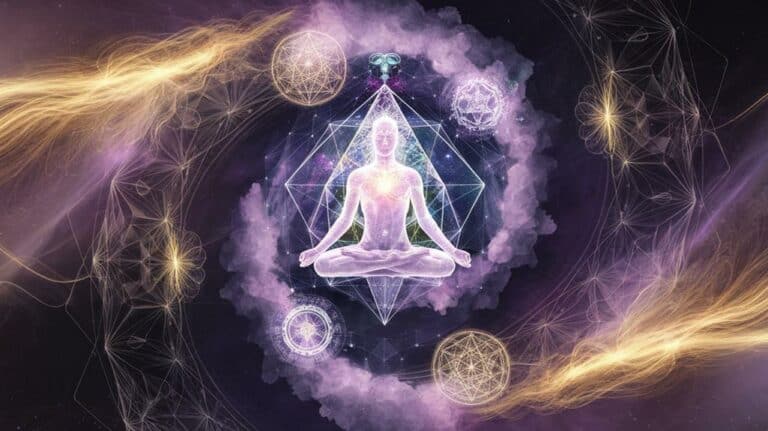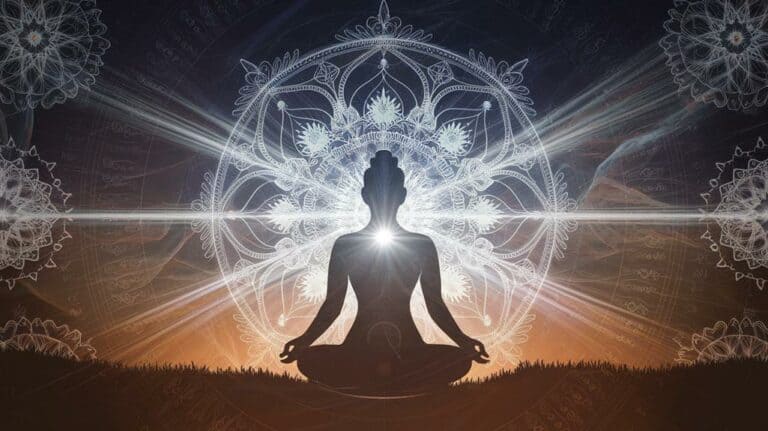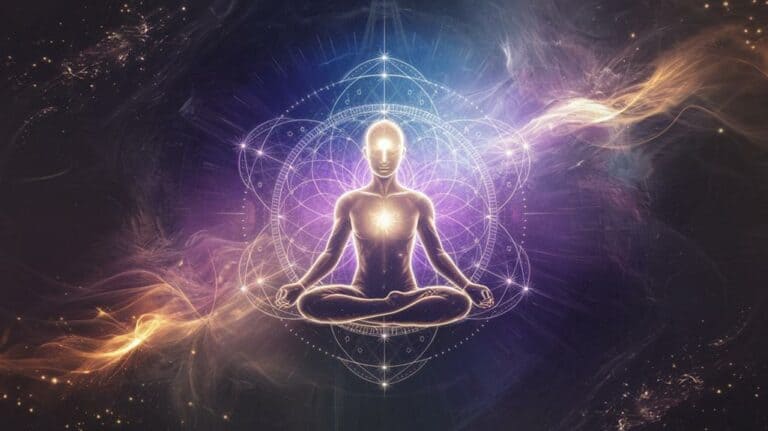How Mysticism Can Transform Our Modern World
As you explore the domain of modern mysticism, you may find that it offers a profound pathway to transforming your connection with yourself and the world. Modern mystics, whether they identify in this way or not, believe in an invisible, pervasive spiritual power that can be accessed and harnessed to enhance health, well-being, and success. By incorporating ancient spiritual practices such as mindfulness, meditation, and group meditations into your daily life, you can cultivate a deeper sense of interconnectedness and compassion. This shift in perspective can lead to significant personal and societal changes, but the question remains: how can you integrate these mystical principles into your contemporary life to drive meaningful transformation?
Defining Modern Mysticism
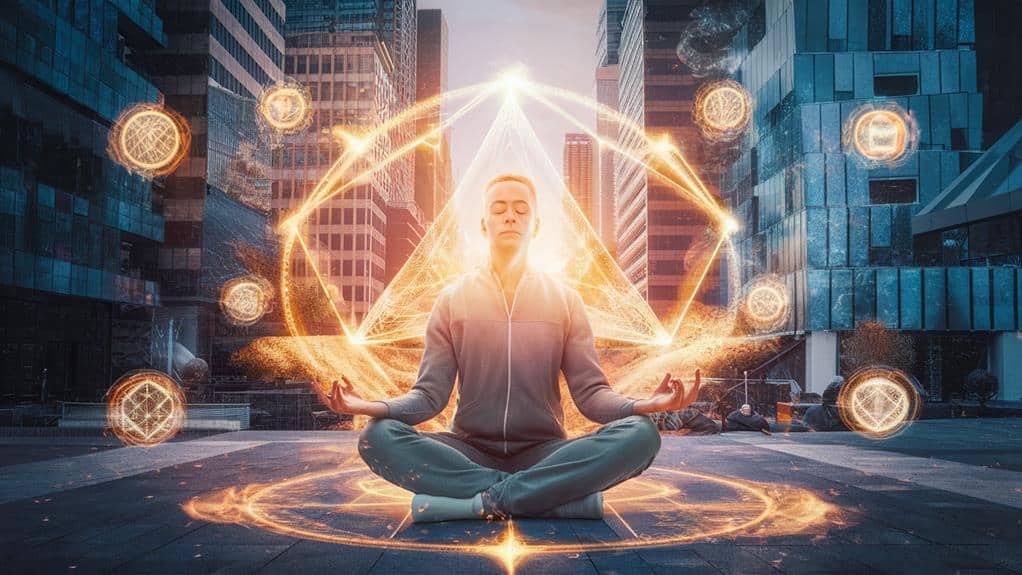
Defining modern mysticism can be challenging, as it often blends ancient spiritual practices with contemporary beliefs and experiences. You might find yourself drawn to mystical traditions that resonate with your inner longing for transcendence, yet struggle to reconcile these with the demands of your daily life.
Modern mysticism isn’t about retreating from the world; it’s about finding sacred meaning within it.
As you navigate this path, you’ll encounter diverse interpretations of mystical experiences. Some may emphasize altered states of consciousness, while others focus on cultivating a deep sense of unity with the universe. You’re not bound by rigid dogma but encouraged to explore and discover your own truth.
In essence, modern mysticism is a bridge between the timeless and the present. It’s about awakening to the profound mysteries that surround you, even in the midst of urban life and technological advancement.
You’re invited to look beyond the surface, to question your perceptions, and to embrace the ineffable aspects of existence. It’s a journey of self-discovery that transforms your relationship with reality itself.
Ancient Wisdom for Contemporary Challenges
Turning to ancient wisdom can offer profound insights for guiding through today’s complex world. You’ll find that timeless teachings from diverse spiritual traditions hold keys to revealing inner peace and maneuvering modern challenges. These age-old practices, refined over centuries, provide a compass for your journey through life’s tumultuous waters.
As you explore mystical traditions, you’ll discover techniques for cultivating mindfulness and presence. These practices can anchor you amidst the chaos of a fast-paced, digitally dominated society. Ancient contemplative methods offer a counterbalance to the incessant distractions of our era, helping you reconnect with your essential nature.
Moreover, you’ll uncover profound philosophical concepts that shed light on the human condition. These ideas, though rooted in antiquity, resonate deeply with contemporary existential quandaries. They offer fresh perspectives on age-old questions of purpose, meaning, and interconnectedness.
Mindfulness and Meditation Practices
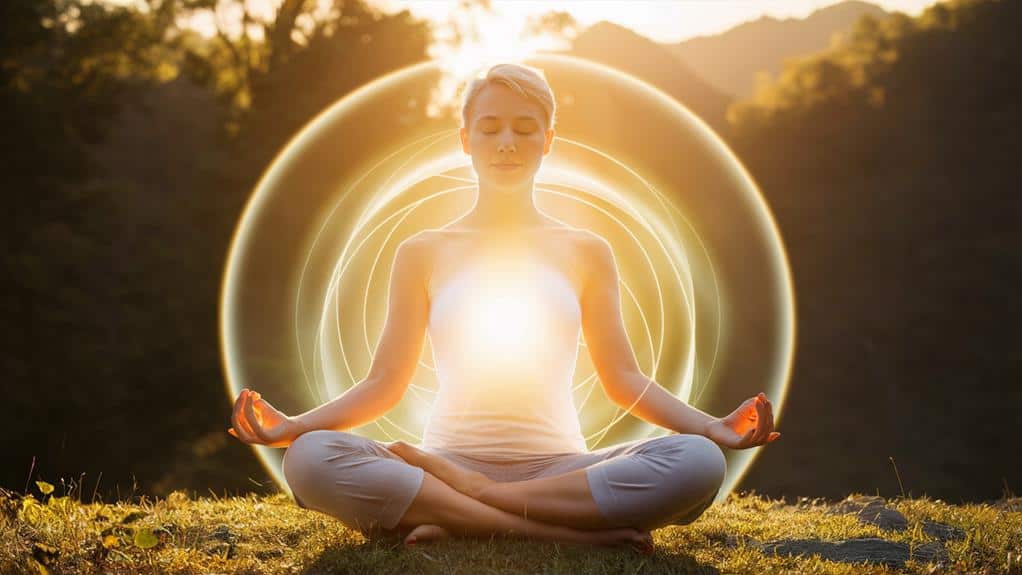
In the midst of a fast-paced, digitally dominated world, mindfulness and meditation practices offer a powerful anchor for your inner journey. These ancient practices, refined over centuries, provide a profound way to cultivate awareness, calm, and clarity in the present moment.
By engaging in mindfulness meditation, you can enhance your attention, emotional awareness, and mental calmness, even in the face of adversity.
Mindfulness involves being intentionally aware of your thoughts, emotions, and bodily sensations without judgment. Techniques such as focused breathing, body scans, and walking meditation help you tune into your present experience, observing what arises and what fades away.
Regular practice can lead to significant improvements in anxiety, depression, and pain management, while also fostering emotional regulation and cognitive flexibility.
As you meditate, you begin to notice the constant flux of your mind, gently bringing your attention back to your breath or chosen focal point. This practice allows you to react to your environment with greater calm and equanimity, enhancing your overall well-being.
By incorporating mindfulness and meditation into your daily life, you can transform your relationship with stress, anxiety, and the uncertainties of modern life, embracing a deeper sense of self-awareness and compassion.
This journey inward is a path to freedom, allowing you to navigate the complexities of the world with greater clarity and peace.
Altered States of Consciousness
In the pursuit of spiritual growth and deeper understanding, many modern mystics explore altered states of consciousness, which can be pivotal in their spiritual journeys. These states, characterized by a temporary deviation from the normal waking state, offer a unique window into the human experience. You may enter these altered states through various means, such as meditation, the use of psychoactive substances, or even spontaneous events like near-death experiences.
As you investigate these states, your sense perceptions and subjective experiences undergo significant changes. Meditation, for instance, can lead to a focused and concentrated mind, while psychoactive substances might alter your perception of time and space. Dreaming and hypnosis are other examples where your normal awareness is transformed, allowing you to experience the world in a distinctly different manner.
These experiences can be profound, often leading to a heightened sense of self-awareness and a deeper connection with the world around you. The concept of unitary consciousness, where everything is seen as interconnected, becomes more palpable in these altered states.
As you transcend the boundaries of your ordinary consciousness, you may find yourself identifying with a broader, unchanging reality—a reality that underlies all existence.
In these moments, the distinctions between the self and the world dissolve, and you’re left with a sense of oneness and transcendence. This is where true spiritual growth and transformation can occur, as you glimpse the ultimate reality that lies beyond the confines of your everyday awareness.
Interconnectedness and Global Awareness
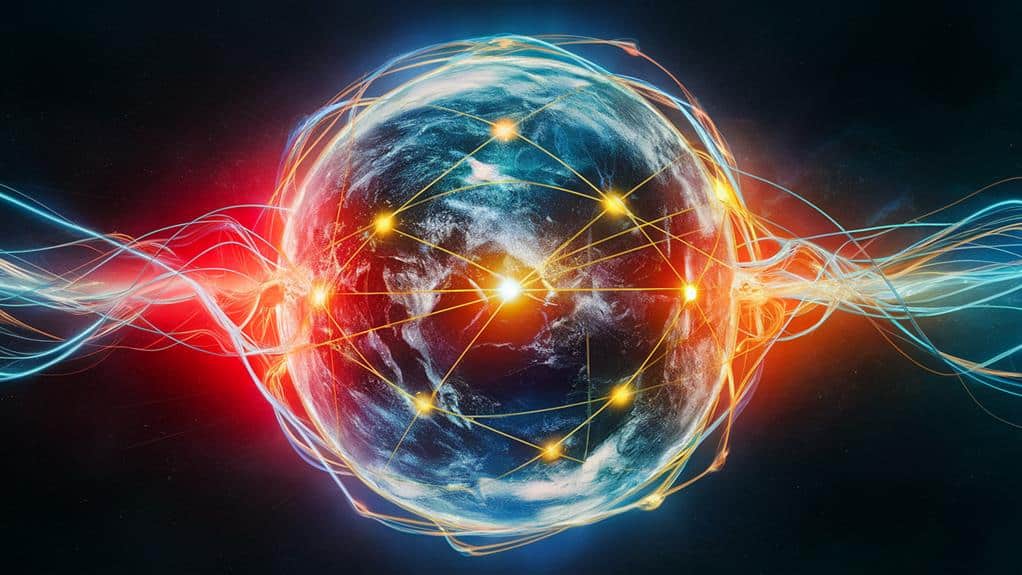
As you deepen your spiritual practice, you begin to realize that the altered states of consciousness you experience aren’t isolated events, but rather part of a larger web of interconnectedness. This realization awakens a profound sense of global awareness, where the boundaries between self and universe blur.
You start to see that every moment of transcendence, whether described as Samadhi, Nirvana, or absorption in God’s Infinite Light, is a thread in the intricate tapestry of human experience.
In this interconnected world, your personal mystical experiences aren’t solitary events but part of a collective journey. You understand that the deep sense of interconnection with the universe and its Creator is a universal language, spoken by mystics across cultures and traditions.
Whether you’re a Hindu, Buddhist, Christian, or follow any other spiritual path, the essence of your experience is a shared human aspiration—to connect with something greater than yourself.
This global awareness fosters a sense of unity and compassion, urging you to live compassionately in service to others.
As you navigate the complexities of modern life, you become a mediator between humanity and eternity, teaching and sharing the profound insights gleaned from your mystical experiences.
In this way, your personal journey contributes to a broader tapestry of spiritual evolution, illuminating the path for others and enriching the collective human understanding of the divine.
Mysticism in Daily Life
Mysticism isn’t just a rarefied experience reserved for moments of deep meditation or spiritual retreats; it can be an integral part of your daily life. According to Karl Rahner, everyone, regardless of their faith or lack thereof, can live a ‘mysticism of everyday life’ by embracing selfless, courageous, and honest living, and by serving others silently.
In your daily routine, mysticism can manifest in the simplest of acts. It’s about finding the divine in the ordinary – the beauty in a garden, the awe in a sky filled with clouds, or the profound connection in a moment of silence with nature.
This form of mysticism isn’t about seeking extraordinary spiritual gifts but about deepening your experiential love for God and, by extension, your love for your neighbor.
Scientific Perspectives on Mystical Experiences
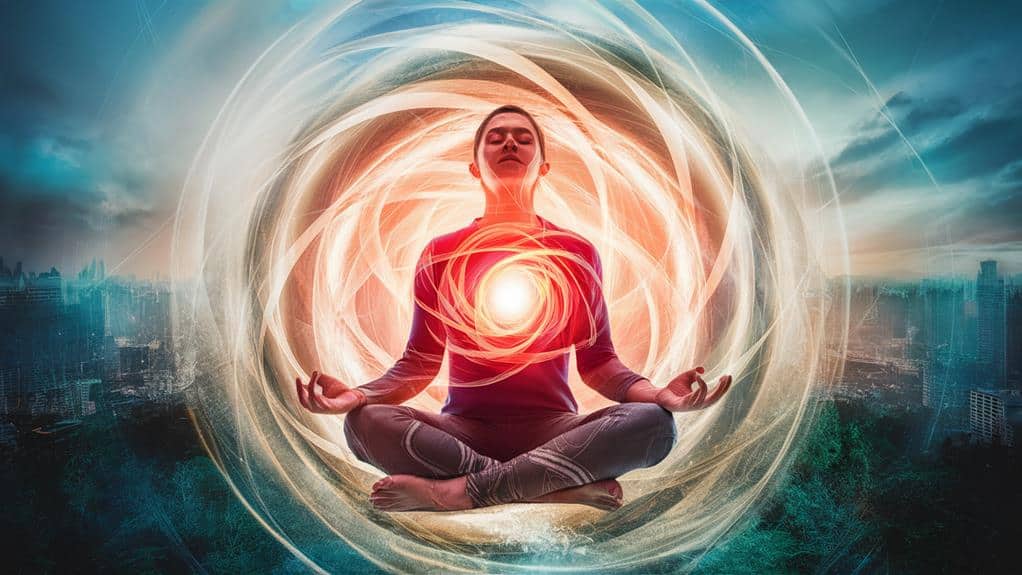
When you experience a profound sense of unity, peace, or transcendence, it can be intriguing to contemplate how science interprets these mystical moments. Scientists are increasingly delving into the domain of mystical experiences, particularly those induced by psychedelics, to understand their therapeutic and philosophical implications.
Researchers like Dr. Albert Garcia-Romeu and Amanda Feilding have highlighted that psychedelic-assisted therapy often hinges on the mystical experiences it induces. These experiences, characterized by feelings of being outside of time, encountering ultimate reality, and the insight that “all is One,” are linked to significant mental health benefits, including long-term antidepressant responses.
However, reconciling these subjective experiences with the naturalistic and empirical methods of science presents a challenge. The notion of mystical experience often conflicts with cognitive neuroscience and naturalism, as it involves subjective aspects that can’t be fully captured by objective scientific inquiry.
This epistemic gap between subjective experience and empirical science underscores the dual nature of understanding: the subjective perspective where the experience feels profoundly real, and the objective viewpoint that can only model and observe these experiences without affirming their veracity.
This dichotomy invites a contemplative exploration of the intersections between inner subjective experiences and the biochemical processes they entail, encouraging a nuanced understanding that respects both the personal profundity of mystical experiences and the limitations of empirical investigation.
Societal Impact of Mystical Thinking
Moving from the scientific perspectives on mystical experiences, it’s important to contemplate how these experiences impact society at large. Mystical thinking, with its emphasis on unity and transcendence, can profoundly shape social dynamics and individual interactions. In the context of Islamic mysticism, for example, it has been a driving force for social cohesion and moral growth. Mystics often focus on implementing divine law, fostering brotherhood, acceptance, patience, and philanthropy, which in turn contributes to a more harmonious and compassionate society.
Mystical experiences can also influence how individuals engage with social issues. By promoting a sense of unity and empathy, mysticism can lead society away from fragmentation and towards a more integrated and caring community. This is achieved through the practice of mysticism in both spiritual and material aspects of life, encouraging balanced growth and the manifestation of divine attributes in human relations.
Moreover, mystical thinking can provide individuals with a deeper sense of purpose and satisfaction, which can have a positive ripple effect on societal well-being. It encourages self-sacrifice, tolerance, and love, transforming individuals into transcendental beings who prioritize the well-being of others.
This transformation can lead to a society that’s more awake, dynamic, and united, rather than one mired in gloom and silence.




